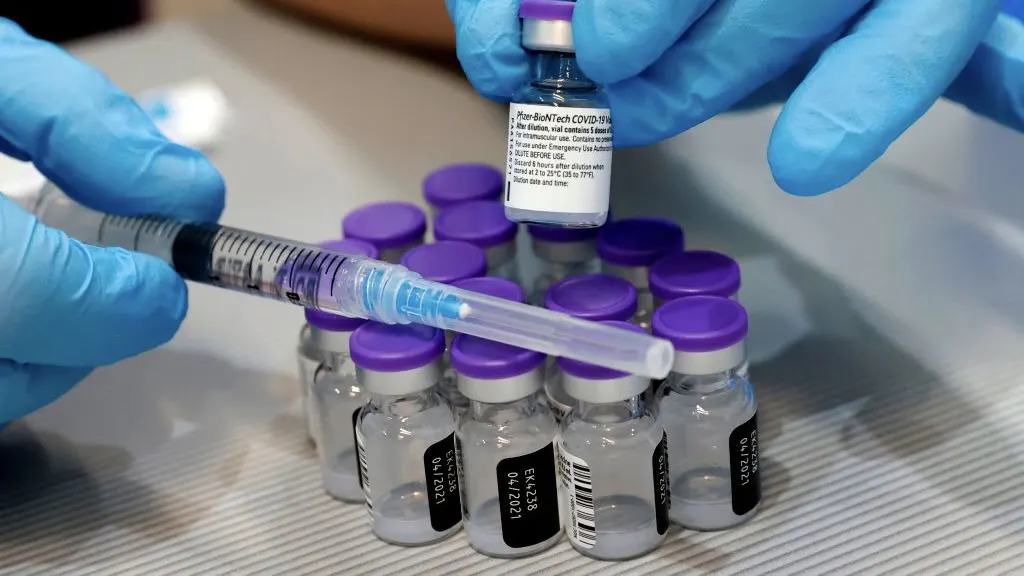Pfizer Inc. and BioNTech SE have released new research and data that shows the COVID-19 vaccine they developed creates high immunity after only one dose and can be successfully stored in regular freezers rather than ultracold temperatures.
The Wall Street Journal reports that the findings by both companies “provide strong arguments in favor of delaying the second dose of the two-shot vaccine.” The United Kingdom is reportedly already using this strategy and giving as many citizens as possible the first dose even if that means the second dose’s administration is postponed. Almost one-third of the adult population in the U.K. has received at least the first vaccine shot.
The Wall Street Journal reports,
A single shot of the vaccine is 85% effective in preventing symptomatic disease 15 to 28 days after being administered, according to a peer-reviewed study conducted by the Israeli government-owned Sheba Medical Center and published in the Lancet medical journal. Pfizer and BioNTech recommend that a second dose is administered 21 days after the first.
The research is reportedly the first real-world data about the vaccine that was not done in clinical trials and was carried out in one of the top nations in immunization. Israel has around 9.3 million citizens and has given the first dose of the vaccine to 4.2 million people and a second shot to 2.8 million, according to its health ministry.
The study, which involved about 9,000 people, also found a 75% reduction in both symptomatic and asymptomatic infections after the first shot. The study was published as a correspondence, meaning it represents the views of the authors and not the Lancet.
Eyal Leshem is the director of Sheba’s Center for Travel Medicine and Tropical Diseases and one of the authors of the study. “This is the first study assessing effectiveness of a single vaccine dose in real-life conditions and shows early effectiveness, even before the second dose was administered,” Leshem said.
Another development comes in the transportation and storage requirements of the vaccine. Pfizer and BioNTech said that it can be stored and transported at a temperature between -25 and -15 degrees Celsius (-13 and 5 degrees Fahrenheit), which is similar to a household freezer. At this time, the labels on the vaccine claim that it must be stored between -80 and -60 degrees Celsius.
The companies said they are currently in the process of getting approval from the U.S. Food and Drug Administration to change the storage rules. Not only would this make it easier to handle the vaccine, but it could also make it more widely available to poorer countries.
As reported by CNBC last month, Israel’s vaccination rollout is the fastest in the world. The world has been watching the Middle Eastern country as results come in regarding the efficacy of the vaccine.
Last month, The Wall Street Journal reported that Israel plans to “vaccinate everyone by March.” Reuters also reported that a top health official said the country might start vaccinating children over the age of 12 in the coming months if research shows that this is a safe practice. Its aim is to reopen the country’s economy by mid-March.

.png)
.png)

